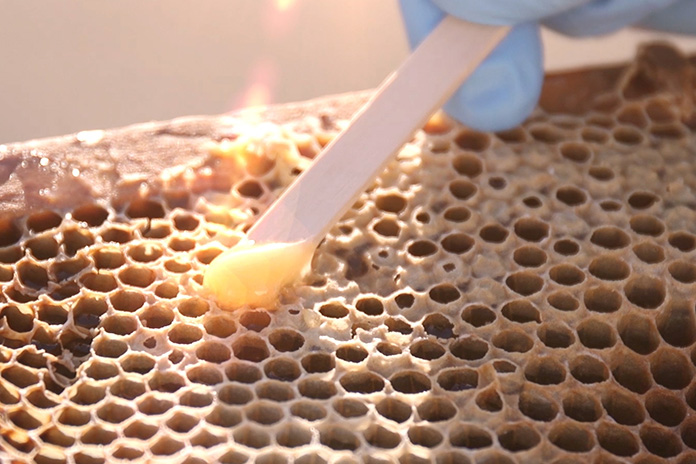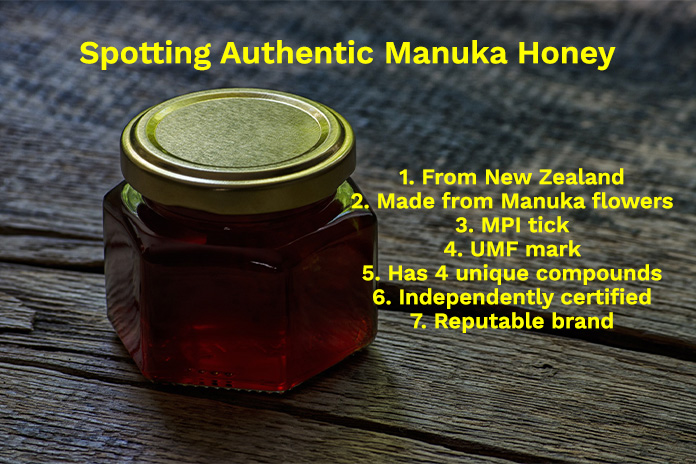
WHEN you are up against a US$40 billion counterfeit industry, consumers have to be very sure what they are getting is the real thing, especially if they are paying top dollar for it.
Even food is not spared the counterfeits. You may believe you have been eating food glazed with the finest truffle oils, syrup derived of the purest sap, wasabi grated from the finest Japanese roots. Unfortunately, it’s mostly radish.
Brands that walk the talk are valued for their integrity and practices that, over time, can become standards; just as Rolls-Royce is often associated with the pinnacle of excellence.
New Zealand-based honey producer, Comvita, takes the purity of its Manuka honey seriously. The US$9B global honey market is forecasted to grow to US$13.5B by 2030. In 2020, the Manuka honey market in Singapore was valued at around S$13.5 million.
Comvita CEO, David Banfield, sees the brand as a haven for consumers, as more people turn to natural health and wellness products. Honey, in particular, can function as a natural sweetener; its inclusion can also benefit medical and topical products. Comvita conducts clinical research to investigate further uses that could offer value to their customers.

Honey Standards
The UMF (Unique Manuka Factor) is the gold standard for Manuka. It’s the only system that independently certifies the presence and quality of the unique activity expected from natural honey.
Comvita is refreshingly transparent on the topic of purity, explaining that the goodness is not evenly distributed, even within its production. The UMF rating makes it easy for consumers to see for themselves which batches contain the powerful bioactives present in natural honey, with higher grades (it ranges from 5+ to 25+) indicating higher concentrations.
If you’re not using Manuka honey for its antibacterial purposes, opt for a low grade like UMF 5+. For those using it for medicinal purposes (treating acne, for digestive health) opt for UMF 10+. Higher grades will hold their antibacterial activity when diluted.

Tree & Bee Guardian
The Manuka tree is native to New Zealand. Housing millions of these trees, Comvita’s Manuka forests provide the perfect domicile for honeybees. An environment where they can forage and thrive enables them to create the most potent honey. Comvita also practice companion planting when establishing their Manuka forests to ensure the bees have a variety of nectar and pollen sources, as well as shelter and stability.
Banfield explains that Comvita has been beekeepers since 1974. The title of “Kaitiaki”, or guardian, comes with much responsibility.
Glyphosphate, a common weed killer and crop desiccant, is consumed by bees as they forage for nectar, inevitably making its way into their honey. Its presence in the environment upstream trickles through the food cycle to insects, animals and humans.
Understandably, Comvita strongly believe such chemicals should not be in food.
They place their hives far from agricultural farms to limit their exposure to such chemicals, and they also test each batch of honey for glyphosphate, an effort that far exceeds the EU standards globally recognised as the most stringent.

Importance Of Bees
As well as supporting the biodiversity of natural ecosystems, bees pollinate some 75% of the global food supply. Sadly, climate change has resulted in a noticeable decline in bee populations, thought to be brought on by human activities such as the heavy use of pesticides, diseases, and other human related development.
During swarming seasons, an alarming number of hives are exterminated globally. Comvita is actively engaged in scaling up its environmental activation efforts.
With 45 patents granted thus far, the company also invests in clinical trials to ensure the safety of their products and the efficacy of any known health benefits, but also to elucidate any unknown benefits of either oral or topical honey usage. Such Manuka studies include the honey’s effects on gut health and atopic dermatitis.
In partnership with the University of Auckland, Comvita’s industry leading research led to the discovery of the unique Manuka honey compound, Lepteridine, in 2014. This compound, being extremely difficult to synthesize and not currently commercially available, is a key marker of authenticity. Their research is currently delving into understanding the unique bioactive properties of the patented Manuka molecule.
t



















